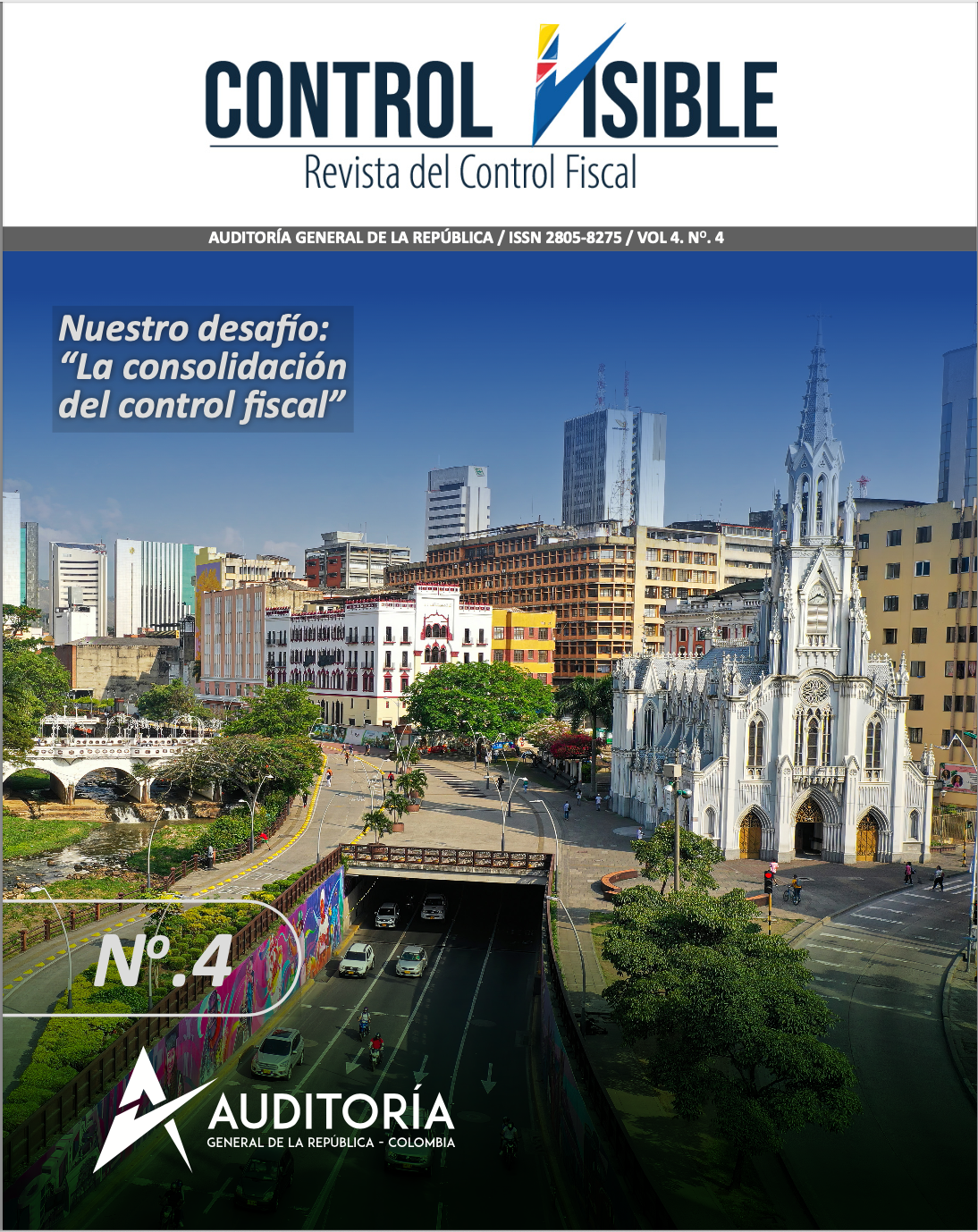Is a court of accounts the real change that Colombian fiscal control requires?
DOI:
https://doi.org/10.70254/controlvisible.2024.4.48Keywords:
fiscal control model, courts of accounts, fiscal control bodies, Fiscal responsibilityAbstract
This article analyzes the parliamentary proposal to reform fiscal control through the implementation of a new model: the court of accounts, highlighting the advantages and disadvantages. To this end, it is proposed to differentiate between a jurisdictional court of accounts, an administrative body of fiscal responsibility and a judicial co urt of fiscal responsibility. In addition, the question will be addressed as to whether this new model would be the only one to intervene in the public sphere as an auditing and/or adjudicating entity, or whether it would coexist with the Contraloría General, the territorial comptrollers and the Auditoría General, who would continue to carry out the investigations on the auditing component of accounts review and fiscal oversight. Or, on the contrary, it would be the same court that would carry out such basic action to prescribe the fiscal responsibility in trial. Although the mere existence of a court with powers of “jurisdictional administrative fiscal responsibility control” does not in itself guarantee an effective administration of justice, the creation of a body with an adversarial structure, where one party accuses and the other defends itself, could strengthen the fiscal justice system. In this scenario, an impartial and objective third party, such as a court, could play a fundamental role in resolving conflicts and ensuring a fairer and more efficient tax control.
Downloads
References
Córdoba, C.F., Revéiz, E., Herrera, B., Junguito, R., Ocampo, J. A., et al. (2022). Colombia Control Fiscal en la República 200 años Bicentenario de la independencia. Contraloría General de la República y Academia Colombiana de Ciencias Económicas.
Dioguardi, J. (2004). Teoría General del Proceso. Buenos Aires: Lexis Nexis
Dorantes Tamayo, L. (1993). La filosofía del Derecho. Buenos Aires: Biblioteca Tiflolibros.
Gómez Lee, I. D. (2006). Control fiscal y seguridad jurídica gubernamental. Universidad Externado de Colombia.
Guzmán Albadán, D. (2019). Funciones jurisdiccionales en cabeza de las contralorías para la realización efectiva del control fiscal. Universidad Nacional de Colombia. https://repositorio.unal.edu.co/handle/unal/76843
Hanssen Tallar, C. (2022). La función jurisdiccional de la Contraloría General de la República - El juicio de cuentas, 2a ed. Editorial Ius Civile.
Maya Villazón, E. (2024). Tribunal de cuentas y Contraloría única. Revista de Economía Colombiana, Edición 371. Editorial CGR.
Morelli, S. (2024). ¿Tribunal de cuentas sí? ¿Tribunal de cuentas no? Revista de Economía Colombiana. Edición 371. Editorial CGR.
República de Colombia. (s.f.). Manual de Estructura del Estado Colombiano. https://www.funcionpublica.gov.co/eva/gestornormativo/manual-estado/rama-judicial.php
Rodríguez Becerra, C. H. (2011). La gestión, el control y la responsabilidad fiscal de la administración pública en Colombia. Ibañez Editores.
Rosero Rico, D. A. (2014). La unidad de la jurisdicción en el estado colombiano. Una mirada a partir de la Constitución Política de 1991. Diálogos de Derecho y Política, 13(6).
Rueda, M. del S. (2008). Fundamentos de derecho procesal colombiano. Bogotá, Editorial de la Universidad de los Andes.
Velásquez Tibocha, J. C. (s.f.). Funciones jurisdiccionales de las autoridades administrativas: un bien necesario. Instituto Colombiano de Derecho Procesal. https://lnkd.in/g-tAcij6
Downloads
Published
License
Copyright (c) 2024 Control Visible

This work is licensed under a Creative Commons Attribution-NonCommercial 4.0 International License.
How to Cite













